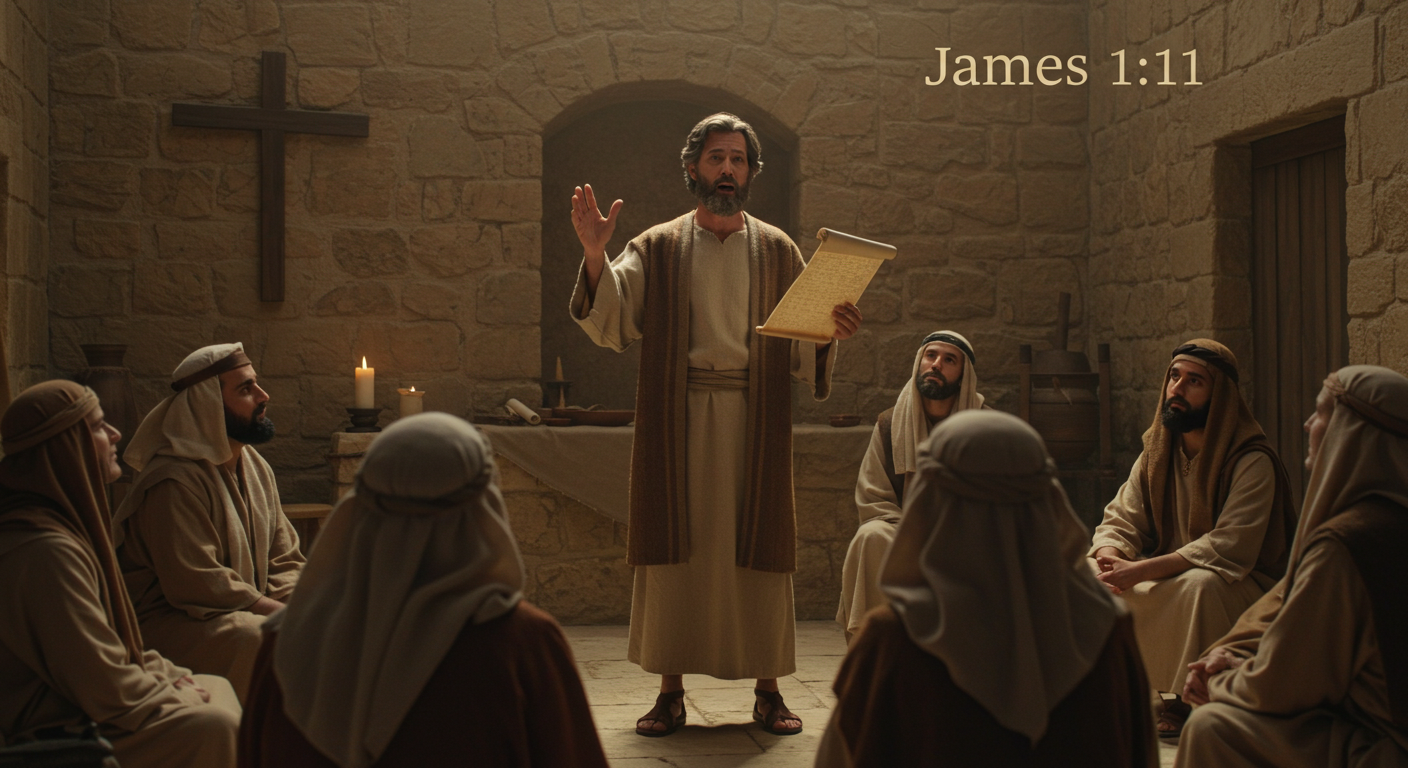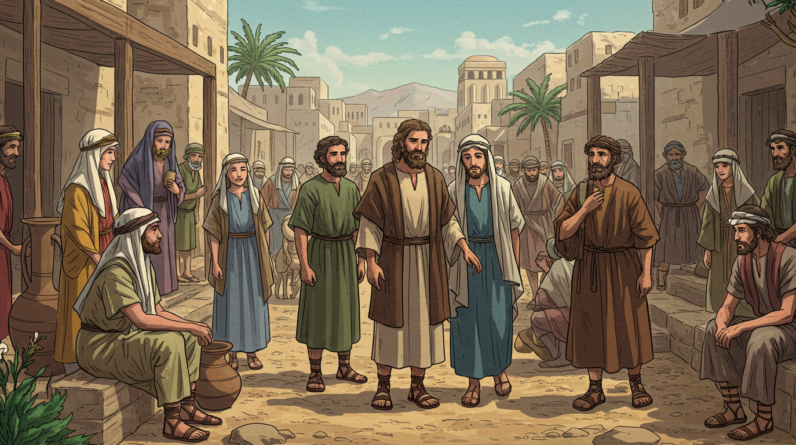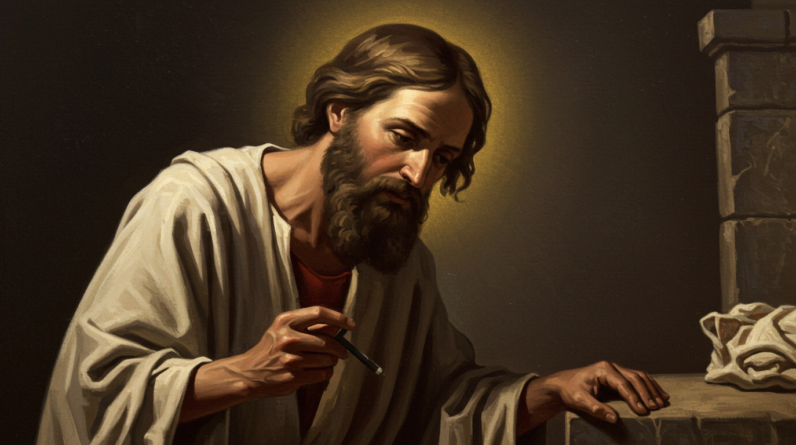James the Just, the brother of Jesus, led the early church with wisdom and humility. Discover how his powerful letter still challenges and encourages believers today.
James the Just: Insights on His Leadership and Influence in the Early Church
James the Just is one of those figures in early Christianity whose impact was profound, yet often overshadowed by more prominent characters like Peter and Paul. His leadership and the role he played in shaping the early Church deserve closer examination. As you journey through understanding his influence, perhaps you will see the early Church through a new lens and appreciate James’s contributions with greater clarity.
Introduction
In a bustling and tumultuous period like the early Christian Church, many names have echoed through history, shaping the very faith that many hold today. Among these foundational figures is James the Just, often recognized as the brother of Jesus. Yet, his contributions go beyond familial ties. James’s leadership was paramount, not only in nurturing the blossoming faith but also in promoting unity among differing factions. But what made his approach unique, and why does his leadership matter today?
📖 Key Verse: James 1:1
“James, a servant of God and of the Lord Jesus Christ, To the twelve tribes scattered among the nations: Greetings.” (James 1:1, NIV)
In this humble introduction, James sets the tone for his epistle, underscoring his dedication to the divine mission rather than his biological connection to Jesus. This perspective offers a glimpse into the essence of his leadership.
The Forgotten Leader: James’s Unique Authority
The Pillar of the Church
James was not just an ancillary figure in the early Church. He was described by Paul as one of the “pillars” of the Church. This acknowledgment places him alongside giants like Peter and John, indicating his pivotal role in guiding early Christians (Galatians 2:9, NIV). His leadership was characterized by his focus on connecting faith with action, emphasizing that genuine belief must translate into tangible deeds.
A Peaceful Mediator
In a time rife with debates about the inclusion of Gentiles and the requirements for new believers, James stood as a voice of reason. During the Council of Jerusalem, he played a crucial role in mediating conflicts between Jewish and Gentile believers. With wisdom and humility, James proposed a way forward that honored the Jewish heritage while embracing Gentiles, exemplifying the spirit of compromise and communal unity (Acts 15:13-21, NIV).

James’s Epistle: A Manifesto for Authentic Faith
Faith and Works: A Dynamic Duo
In his epistle, James articulates a faith philosophy that intertwines belief with behavior. His well-known assertion that “faith without deeds is dead” challenges believers to live their faith actively and visibly (James 2:26, NIV). This message was not just about religious observance but a call to social justice and active compassion, resonating powerfully in today’s context.
The Power of Words
James also delves into the potency of words, cautioning believers about the tongue’s destructive potential. His insights serve as timely reminders of the ethical responsibility language carries and the importance of fostering kindness and understanding in communication (James 3:5-10, NIV).
The Legacy of James: Lessons for Today
A Model of Humility
James’s legacy is one of humility and service. Despite his status, he refrained from leveraging his familial ties for authority. Instead, he portrayed himself as a servant, prioritizing the message of Christ over personal ambition. This humility is a timeless lesson for leaders today, emphasizing servitude over self-importance.
Bridging Divides
James’s role as a mediator and his efforts to bridge divides is perhaps more relevant now than ever. In an era where differences often lead to division, his approach offers a blueprint for fostering inclusivity and cooperation. By valuing dialogue and championing unity, James demonstrated that harmony is achievable even in the face of doctrinal divergences.
Conclusion
James the Just may often be an unsung hero of the early Church, but his leadership and teachings continue to influence Christian thought and practice today. From advocating for a practical faith to epitomizing humility and fostering unity, his legacy endures. As you reflect on his contributions, consider how his insights can be applied in contemporary contexts, not only within religious circles but across various spheres of life.

🔍 Explore More Bible Insights:
✅ 1. Serving God by Serving Others
Tone: Practical, inspirational, servant-hearted
🔹 “Live Out Your Faith with These Reads”
✅ 2. The Prayer of Jabez – 1 Chronicles 4:10
Tone: Encouraging, bold faith, personal growth
🔹 “Ask Boldly, Live Fully – Keep Reading”
✅ 3. The Promise of Eternal Life – 1 John 2:25
Tone: Reassuring, hope-filled, theological
🔹 “Secure in Christ – Explore More”
✅ 4. Lessons from the Battle of Jericho – Joshua 6
Tone: Obedience, victory through faith, historical insight
🔹 “Victory Through Faith – Read Next”
As a ClickBank Affiliate, I earn from qualifying purchases.
Acknowledgment: All Bible verses referenced in this article were accessed via Bible Gateway (or Bible Hub).
“Want to explore more? Check out our latest post on Why Jesus? and discover the life-changing truth of the Gospel!”








